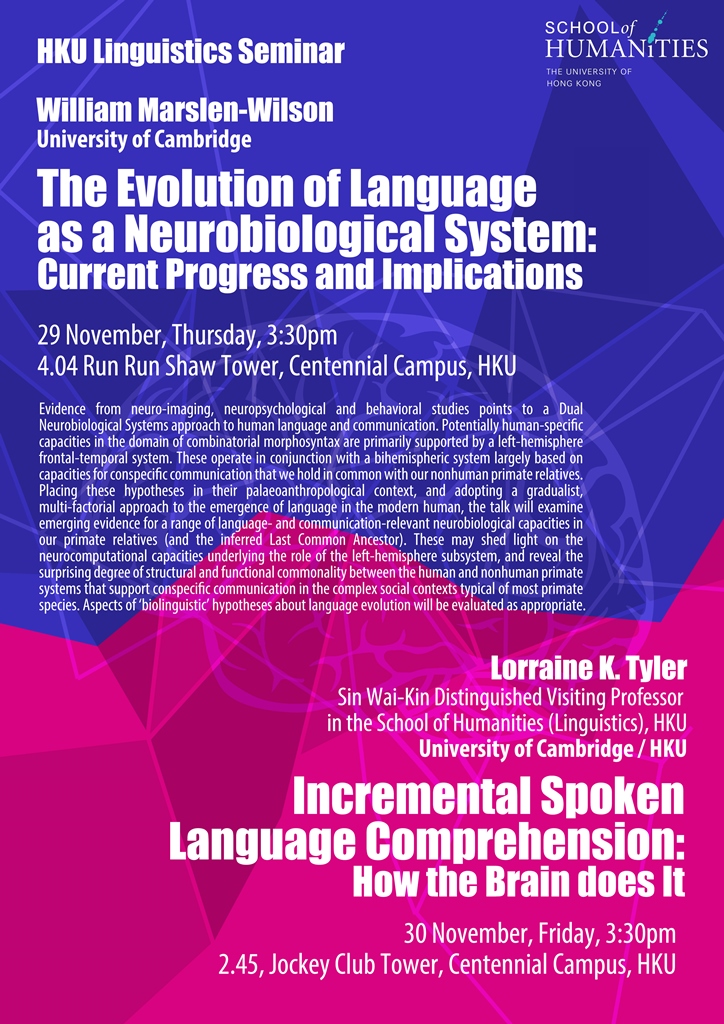

The evolution of language as a neurobiological system: Current Progress and Implications – William Marslen-Wilson, University of Cambridge
November 29, 2018 @ 3:30 pm - 5:00 pm
Title: The evolution of language as a neurobiological system: Current Progress and Implications
Time: Thursday 29 November, 3.30pm
Place: Room 4.04, Run Run Shaw Tower, Centennial Campus, University of Hong Kong
Abstract:
Evidence from neuro-imaging, neuropsychological and behavioral studies points to a Dual Neurobiological Systems approach to human language and communication. Potentially human-specific capacities in the domain of combinatorial morphosyntax are primarily supported by a left-hemisphere frontal-temporal system. These operate in conjunction with a bihemispheric system largely based on capacities for conspecific communication that we hold in common with our nonhuman primate relatives. Placing these hypotheses in their palaeoanthropological context, and adopting a gradualist, multi-factorial approach to the emergence of language in the modern human, the talk will examine emerging evidence for a range of language- and communication-relevant neurobiological capacities in our primate relatives (and the inferred Last Common Ancestor). These may shed light on the neurocomputational capacities underlying the role of the left-hemisphere subsystem, and reveal the surprising degree of structural and functional commonality between the human and nonhuman primate systems that support conspecific communication in the complex social contexts typical of most primate species. Aspects of ‘biolinguistic’ hypotheses about language evolution will be evaluated as appropriate.
